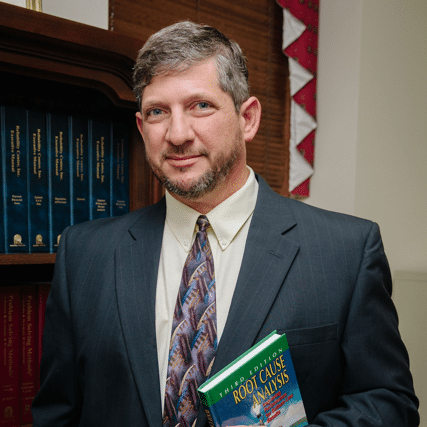What is ‘Reliability Engineering’?
What is ‘Reliability Engineering’?
I have been very involved recently with ongoing LI discussions with respected and noted experts in the Safety community, revolving around the perceptions those in Safety have of Reliability, and vice-versa.
In Safety today, there are ‘new’ approaches emerging being lead by noted Safety researchers like Sidney Dekker, Erik Hollnagel and Todd Conklin. Such ‘new’ approaches are being labeled Safety Differently, Safety II, Human and Organizational Performance (HOP), Resilience Engineering and a few more.
As a career Reliability practitioner, when learning more about these approaches, I was not seeing anything ‘new’ about them. I did not disagree with them, I just didn’t see anything new. This is because I have practiced Reliability as I know it, for 30+ years and we have been applying these very same principles as a critical part of a holistic approach to Reliability. In my world, Human Reliability has always been a part of an effective Reliability system. I’m gathering from my extensive discussions with Safety experts that is not the general consensus outside of my Reliability circles, and perhaps inside?
So I wanted to reach out to my friends and colleagues in Reliability to get their perspectives about this journey I have been on in the Safety space.
I presented at an SMRP symposium last year on “Is there a direct correlation between Reliability and Safety?“. I presented many of these impressions from Safety about Reliability, and my audience was astonished at that perception. They thought I was making it up! So it was then I wanted to better understand why the wide gap in perspectives between the two fields?
I received permission from my colleague Gareth Lock who is a recognized and well-respected Safety expert, specializing in Human and Organizational Performance (HOP), to use his quote from a recent post. I am thankful for the permission to use his quote.
Gareth noted the Wikipedia Definition of RELIABILITY ENGINEERING: “Reliability engineering is a sub-discipline of systems engineering that emphasizes dependability in the lifecycle management of a product. Dependability, or reliability, describes the ability of a system or component to function under stated conditions for a specified period of time.”
In that previous post, Gareth laid out these five (5) principles of HOP:
1. People are fallible, and even the best people make mistakes.
2. Error-likely situations are predictable, manageable, and preventable.
3. Individual behavior is influenced by organizational processes and values.
4. People achieve high levels of performance because of the encouragement and reinforcement received from leaders, peers, and subordinates.
5. Events can be avoided through an understanding of the reasons mistakes occur and application of the lessons learned from past events (or errors).
Based on this article about perceptions of Reliability Engineering:
1. What do you think as individuals regarding this characterization of Reliability Engineering?
2. What do you think your customers believe Reliability Engineering is?
3. What do you think about the accuracy of this stated perception from Safety, and if these 5 principles play a role in a holistic Reliability system based on your experience? Can you provide any evidence (with links) to back up your position either way?
Gareth made a notable comment during our discussion, “If the Wiki page is all about components, perception is likely to be about components and hardware…The good news is the Reliability Engineering community can do something about that perception by updating Wiki. The hard part of perception and reputation is that it is externally generated and we only find it if we actively look for it.”
If we don’t agree with the Wikipedia definition of Reliability Engineering, as a community we should change it to reflect what it actually is today. I encourage those involved in Reliability Engineering, especially the various societies who feel it may be mischaracterized, to take Gareth’s advice and provide input to Wikipedia to change it!
Thanks in advance for your input.
About the Author
Robert (Bob) J. Latino is CEO of Reliability Center, Inc. a company that helps teams and companies do RCAs with excellence. Bob has been facilitating RCA and FMEA analyses with his clientele around the world for over 35 years and has taught over 10,000 students in the PROACT® methodology.
Bob is co-author of numerous articles and has led seminars and workshops on FMEA, Opportunity Analysis and RCA, as well as co-designer of the award winning PROACT® Investigation Management Software solution. He has authored or co-authored six (6) books related to RCA and Reliability in both manufacturing and in healthcare and is a frequent speaker on the topic at domestic and international trade conferences.
Bob has applied the PROACT® methodology to a diverse set of problems and industries, including a published paper in the field of Counter Terrorism entitled, “The Application of PROACT® RCA to Terrorism/Counter Terrorism Related Events.”
Recent Posts
5 Root Cause Analysis Examples That Shed Light on Complex Issues
Root Cause Analysis with 5 Whys Technique (With Examples)
What Is Fault Tree Analysis (FTA)? Definition & Examples
Guide to Failure Mode and Effects Analysis (FMEA)
Tags
high reliability organizations
Human Error/Safety
Reliability
reliability concepts
reliability engineering
Root Cause Analysis Software
Our RCA software mobilizes your team to complete standardized RCA’s while giving you the enterprise-wide data you need to increase asset performance and keep your team safe.
Get Free Team Trial
Root Cause Analysis Training
Your team needs a common methodology and plan to execute effective RCA's. With both in-person and on-demand options, our expert trainers will align and equip your team to complete RCA's better and faster.
View RCA Courses
Reliability's root cause analysis training and RCA software can quickly help your team capture ROI, increase asset uptime, and ensure safety.
Contact us for more information:

